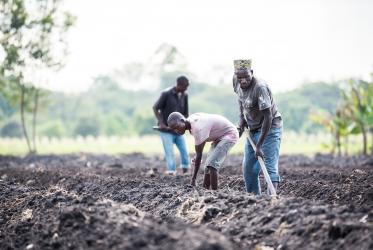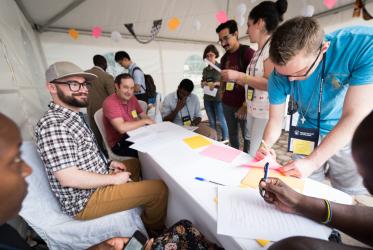Displaying 1 - 8 of 8
‘Sokoni’ transforms marketplace into mission
13 March 2018
“Good healthcare a right, not a privilege,” says WCC-EAA
11 October 2017
“It’s time to be brave, to form diverse partnerships”
02 March 2017
Land rights focus of panel discussion
17 November 2015
Churches engage in development dialogue on Africa
06 March 2013







